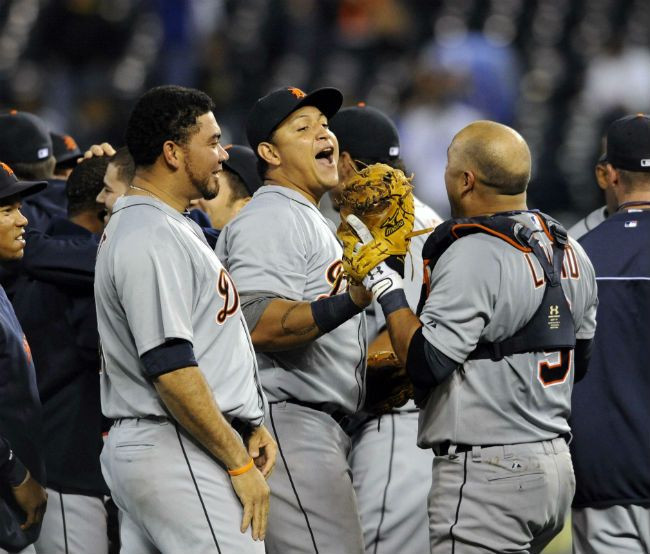
Venezuelans are gripped by uncertainty over President Hugo Chavez's re-election chances on Sunday but another looming worry is whether they will see their top baseball players on home turf when the season starts four days later.
Opening day in Venezuela is October 11, just as the North American season heads toward its climactic World Series.
Favourites like Cleveland Indians shortstop Asdrubal Cabrera are among the 57 Venezuelan players put on this year's "extreme fatigue" list by their major league clubs, potentially banning them from playing in their home country during the off season.
Many of the 57 will be able to negotiate at least some playing time at home this year. Cabrera's coach at the Caracas Lions expects to see the 26-year-old switch hitter in the starting line-up in December.
But the list has angered fans of the eight teams that make up Venezuela's league, saying it casts a shadow of uncertainty over the local season and threatens to lower the quality of play.
Players from the Dominican Republic, Puerto Rico and Mexico also figure on the list, which is made up of injured players and those who met a threshold number of innings played in North America during the regular season.
The threshold number of innings is negotiated position by position between the Caribbean league and Major League Baseball (MLB). The list, part of the "Winter Agreement" signed between the two leagues, is meant to protect the increasing investment that big league teams are making in talent from Latin America.
But that matters little to the average Venezuelan spectator who may never make it to a major league game and wants to see the country's best prospects playing live at home.
"A player should be allowed to play where his fans are. We want to see our best players here in Venezuela," said Daniel Zambrano, 22, first baseman on an amateur community team in the town of San Cristobal near the Colombian border.
The MLB teams that have invested millions of dollars in Venezuelan talent do not want to see their players benched because they were over-played or took a wild fast ball in the face during winter play in Caracas or Santo Domingo.
The number of Venezuelans who appear on the extreme fatigue list has remained steady at about 60 over recent years.
Fans are, however, paying increasing attention to the agreement with each passing season, spurred by headlines in the local press such as a recent one in daily Ultimas Noticias that shouted: "Extreme fatigue freezes Caribbean League".
WATCHING SANTANA
Oscar Garcia, a local scout for the Detroit Tigers, which is currently home to Venezuelan batting phenomenon Miguel Cabrera, said he has a vested interest in seeing Venezuelan players stay healthy as they rise in the majors.
"But as a fan of Venezuelan baseball I'd like to see our best prospects playing here, the way we used to watch Johan Santana when he was coming up," the bespectacled and solidly-built Garcia said over breakfast in a Caracas cafe.
Santana made history in June by pitching the first no-hitter for the New York Mets. He once played for Pres. Chavez's favorite team, Los Navegantes de Magallanes, aka Valencia Navigators.
"Players like Santana are idols here," Garcia said, "mostly because we watched him pitch on our fields while we has climbing the ranks."
Before Venezuelan fans can settle in for the season they have to get through Sunday's election, in which socialist firebrand Chavez faces the toughest challenge yet.
A fan himself who once dreamed of pitching in the majors, Chavez has seen most big league teams close their Venezuelan training camps during his 14 years in power.
MLB and other foreign investors shy away from Chavez's self-styled revolution, which has included the nationalization of private companies and complicated currency controls that can make it hard to do business in the South American country.
This, local experts say, has made it more difficult to develop local baseball talent.
Sixty-six Venezuelans were on big league rosters on opening day 2012, a record for the country. But the Dominican Republic, which has meanwhile rolled out the red carpet for big league training academies, remains by far the MLB's top outside source of talent with 95 players at the start of this season.
© Thomson Reuters.




